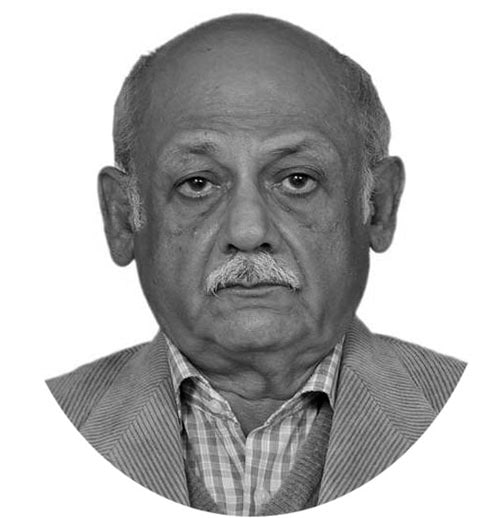International community and recognition of Taliban regime
ON the 15 August the political picture in Afghanistan changed dramatically and the political landscape witnessed some historic turnaround in its political history.
The government of Afghanistan propped up and supported by the USA and other western democracies was swept away and fell like leaves in wintry weather with the surrender of the Afghan army and the sudden flight of its last President Ashraf Ghani into exile.
For the past two and a half months now the Taliban forces are in a firm grip of the country and busy in establishing the Islamic Emirates of Afghanistan originally founded by the Taliban founder mullah Omar in 1996.
Most of the countries of the world have closed down their embassies and as of today no country has formally recognized the new Taliban Government in Afghanistan.
Leaders of the various factions of the Taliban are still discussing what type of government this new regime will be among themselves and a few prominent Afghan leaders including some officials of the former regime.
During the last Taliban rule from 1996 to 2001 under the Taliban supremo Mullah Omar only three countries in the world had recognized this obscurantist and fundamentalist group of militants and now the focus in Afghanistan is more on the immediate problems like food security economic collapse and the law and order situation.
Policy makers in major world capitals are already thinking of what is to come next and the primary question now is: whether to recognize the Taliban regime as Afghanistan’s legitimate new government representing the people of Afghanistan.
The Taliban are now desperate to get recognition from the world community and have launched a diplomatic campaign to achieve that end.
The USA and other western democracies have set conditions such as their treatment of women, human rights girls’ education and an inclusive government The UN Secretary General Antonio has described recognition as “The only leverage that exists” over the Taliban and has advocated a united front among the UN member states.
The definition of the term “recognition” in international relations is rather confusing to explain.
This term is confused with the term to imply normalization of relations between countries or even the endorsement of one government by another in reality, recognition is a far narrower legal act that bears on, but is distinct from, many of the substantive policy decisions that define bilateral relationships.
In international law and diplomacy, “recognition” is a term of art used to describe when one state acknowledges the existence of another state and an associated government able to speak for that state in international affairs.
While state and governmental recognition can take place together or independently, the former is a necessary precondition for the latter.
Recognition is particularly important for international law, as it helps identify whether an entity can, as a state, possess rights and duties under international law and whether a regime may, as that state’s government, and exercise those rights and duties on that state’s behalf.
A state will in turn be held responsible for how its government exercises those rights and duties, even if that government ceases to exist or is replaced by another.
The Taliban regime headed by Mohammed Hassan Akhund as Prime Minister and Mullah Abdul Ghani Baradar as deputy Prime Minister are now fully in control of the country.
The slight opposition they faced in the Panjsher valley by the followers of Ahmed Shah Masood has been crushed and now they are the masters of the fate of Afghanistan.
They have called upon the international community to recognize their government. but countries surrounding Afghanistan or those with some influence in Afghanistan have their own set of conditions for recognizing the Taliban Government.
It will all depend on the steps taken by the Taliban. Will they respect human rights and rights of women? Will they give rights to non-Muslim minorities? Girls will be allowed to go to school? How will they control the nefarious activities of international terrorist groups on their soil? Pakistan has a genuine interest in their policy towards the Pakistani Taliban in Afghanistan.
The IMF has declared that engagement with the Taliban will remain suspended until the international community declares a common position on recognizing the Taliban.
IMF spokesperson Gerry Rice said interaction with Afghanistan would be suspended until the international community made a final decision on recognizing the Taliban led Government in Afghanistan.
Russia’s Ambassador to the United Nations, Vasily Nebenzya, also said his country does not recognize the Taliban.
Mr Nebenzya has said that the Taliban government had not yet been recognized by any country because it was not a legitimate government by international standards.
Britain, France and many other countries of the European Union have also have also expressed similar concerns.
Views of the Taliban government regarding the preconditions demanded by the international community are not known but Taliban officials have previously stated that they have declared a general amnesty and that no one is threatened.
The Taliban have said that they respect women’s rights under Sharia law, adding that once they create a safe environment, they will not be stopped from studying and working. Truth of their saying is yet to be seen.
—The writer is Professor of History, based in Islamabad.










